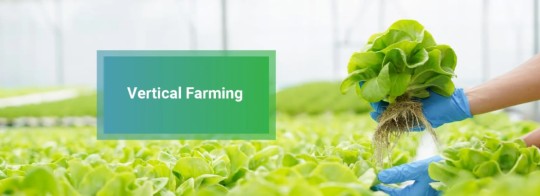Text
0 notes
Text
0 notes
Text
0 notes
Text
Smart Agriculture using AI
Agriculture solutions are bringing transformations into agricultural practices. Innovative methods and techniques like smart agriculture, digital agriculture, horticulture, and vertical farming are changing agriculture life cycle processes and operations. Various emerging technologies are used while developing modern solutions suitable for particular agricultural methods, including Artificial Intelligence (AI), the Internet of Things (IoT), Machine Learning (ML), Blockchain, and so on. AI in agriculture has been popular due to its human-like intelligence allowing machines to observe, analyse, understand, and store data. AI-based solutions are widely used in smart agriculture practices to carry out several field activities, processes, and operations, as discussed below.
On-farm planning and production efficiency: Agricultural production depends on the strategic planning of each stage involved in the agriculture life cycle from soil examination to warehousing. Based on environmental conditions, available resources, and changing circumstances, on-farm planning may deviate. New technologies like crop identification, energy efficiency, environmental impact, socio-economic assessment, and adoption studies help in enhancing production efficiency through optimising on-farm planning.
Identification of farm zones: Not all farms, even neighbouring farms, have similar soil type, quality and fertility. These parameters affect crop growth and health, impacting overall production. Smart agriculture solutions start with soil quality tests and accordingly suggest crop types that can be grown in the field. Moreover, water management has been a critical issue all across the world for a decade now. Availability of water resources also affects crop decisions. Farmers use AI in agriculture to provide historical data on crops, production, weather, and resources to get insights into suitable crops based on farm zones.
Soil management: Soil is the most critical parameter in agriculture. Due to the excess use of chemicals and resources in the past five-six decades, soil quality and fertility have degraded. To enhance agricultural production with sustainability, soil management is necessary. It involves soil preparation, monitoring, health, and fertility check. Soil management is one of the basic steps in smart agriculture practices to ensure crop health and growth.
On-farm storage management: Harvesting and warehousing are the last but important stages in the agricultural life cycle. Using AI in agriculture solutions, farmers can easily sort or grade yield and carry out product quality assessments. Smart systems monitor yield quality parameters such as temperature, humidity, moisture, and others to avoid yield damage. Storage building indoor atmosphere can be automatically controlled depending on the crop type and its storage requirements.
Thus, AI in smart agriculture has been adopted immediately and the latest solutions are becoming more efficient and effective with a deeper knowledge of the AI technology.
0 notes
Text
0 notes
Text
0 notes
Text
0 notes
Text
0 notes
Text
0 notes
Text
0 notes
Text
0 notes
Text
0 notes
Text
0 notes
Text
0 notes
Text
0 notes
Text
0 notes
